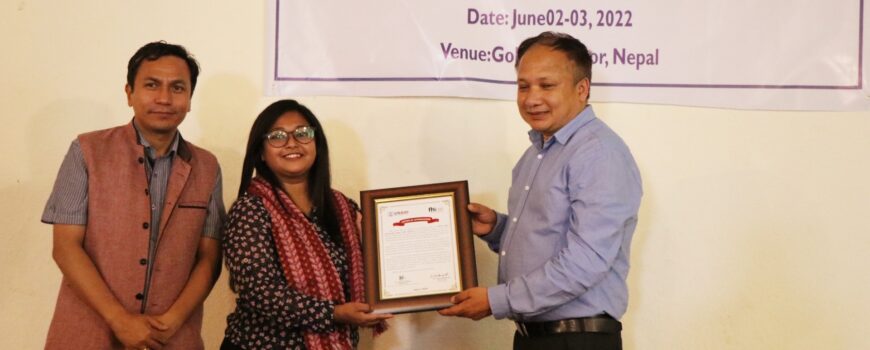
The Civil Society : Mutual Accountability Project (CS:MAP) was a five- year project supported by the USAID and implemented by FHI360. CS:MAP’s goal was to foster a more legitimate, accountable, and resilient Nepali Civil Society that is capable of advancing the public interest. This grant to the South Asia Partnership- Nepal was issued under the ‘Strengthening Enabling Environment’ grants fund to contribute to the project’s Objective 1: Strengthened enabling environment for civil society and media as national partners of the project. Though this project was planned to close out at 2021 it was further extended till May of 2022 to shore up the progress of the project and set the stage for lasting change within civil society and media. The close out strategy of FHI360 focused on two key areas: (1) promoting greater inclusion and (2) supporting replication of civic engagement and governance models.
The close-out meeting of CSMAP project was conducted on 2 and 3 June 2022 Kathmandu by FHI360 with the major objectives were to: (i) Assess the LOP (List of Open Points) results, including what went well and could have been done better, (ii) wrap up CS:MAP activities and sustainability actions; (ii)Capture overall success, best practices, and lessons that other USAID projects and government and non-government agencies can replicate; and (iv)Celebrate the CS:MAP achievements! The participants of the event included executive directors, program leads, and district coordinators of the CSMAP implementing partners, CS:Map team of FHI360 , and USAID representatives.
In the event, SAP Nepal representative shared about organizational achievements and sustainability aspects of the project. The significant achievements of the project included: (i) Initiative of SAP Nepal to discuss on the 6 different regressive policy and acts that has been shrinking the civic space for CSOs including Social Organization Act 2075, (ii) Development of effective platform of think tank for intellectual discourse on pertinent issues, and, (iii) Community score card guideline preparation that was identified as effective tool for improving downward accountability towards communities as well as forward accountability toward government and donor agencies. Towards the end of the close-out meeting, all CSMAP implementing partners were felicitated for their contribution to the project.

